Short-Run & Mass Production Mold Making Services
Formioo provides custom mold making services for both short-run and mass production with fast lead times, durable tooling solutions, and cost-effective scalability.
- Precision Mold Making with tolerances as tight as ±0.01 mm
- 50+ Certified Materials & 15+ Surface Finishing Options
- Cost-effective solutions for both short-run and mass production
- Testing products to ensure they perform their intended functions as specified
- Prototype mold production of 10,000 plus per month
One-Stop Mold Making Supplies for All Your Project Needs
Formioo is a China-based injection molding manufacturer providing professional mold making services for both short-run trials and full-scale mass production. With in-house CNC machining centers, EDM, and wire-cut machines, we offer rapid tooling solutions that help customers move from design to molded parts in days, ideal for product validation and market testing.
Our engineering team offers DFM (Design for Manufacturability) analysis and mold flow simulation to optimize mold structure, cooling layout, and gating strategy. This allows us to solve common issues such as short shots, uneven shrinkage, or early tool wear. Whether you’re developing an aluminum prototype mold or a multi-cavity hardened steel mold for continuous production, we ensure tool life, part consistency, and smooth ramp-up to production.
Since 2016, Formioo has delivered hundreds of custom molds to clients across industries such as automotive, medical devices, consumer electronics, packaging, and industrial equipment. Our ability to handle both low-volume and high-volume mold programs makes us a trusted partner for companies seeking reliable, scalable, and cost-effective mold solutions.
Our Mold Making Capacities
Formioo offers a comprehensive range of mold making capabilities to support both short-run and high-volume plastic injection production. Our in-house tooling facilities are equipped for high-precision CNC milling, EDM, wire-cut machining, surface grinding, and deep-hole drilling—enabling us to manufacture prototype molds, bridge tools, multi-cavity production molds, and family molds. We work with a variety of tooling materials, including aluminum, P20, NAK80, H13, S136, and hardened steel, ensuring the right balance of speed, durability, and cost for each project.
To meet different functional and cosmetic requirements, we apply various mold manufacturing processes such as high-speed machining, hardened insert fitting, and hot or cold runner system integration. Surface finishing options for molds include polishing, texturing (SPI, VDI), nitriding, chrome plating, and mold coatings like TiN or DLC. Our precision tooling operations regularly achieve tolerances of ±0.01–0.02 mm, and each mold undergoes dimensional verification and mold trial evaluation to ensure readiness for production.
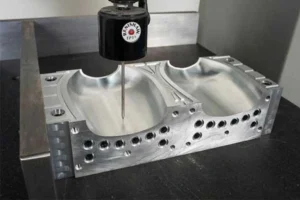
High precision, tight tolerance, complex structure
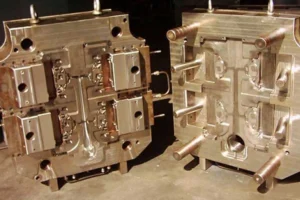
Ideal for high-strength metal parts with intricate designs.
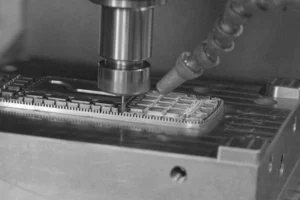
Short delivery time, suitable for low-volume production
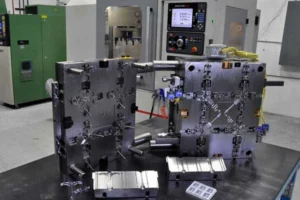
Medium delivery time, suitable for mass production
Our Advantages of Mold Making Services
Formioo is an experienced provider of mold making services with lots to offer beyond our competitors:

Fast DFM reports
Although we check your design feasibility when providing a quote, we can provide a fast and thorough DFM (design for manufacturability) report before production begins. In the DFM report, we’ll identify any errors or issues that might cause a manufacturing problem down the line.

Wide range of molds
We offer several different types of molds, which means you can avoid splitting your projects; just send everything to us to ensure your project runs smoothly.

Fast Turnaround
Our large facility and machining capabilities allow us to build molds quickly, whatever the application or material, which means you can get your moldings completed faster.

Molding Capabilities
Formioo can ship your molds to you directly, but we can also handle injection molding and other production services to deliver you prototypes and final parts using those molds.
Study Case of Our Mold Making Service
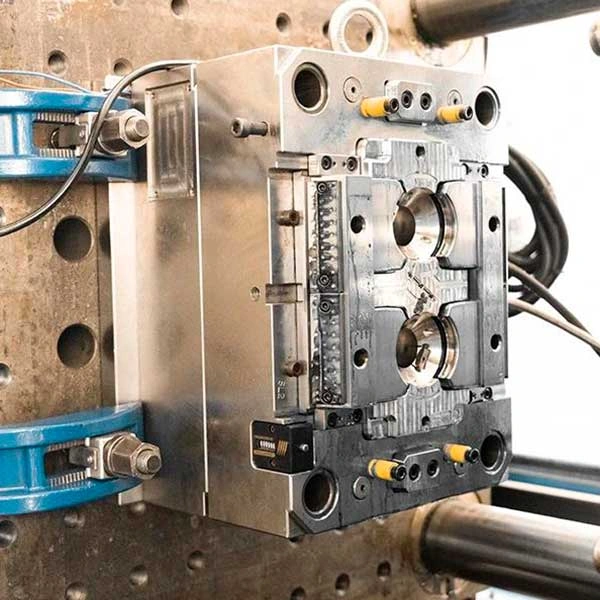
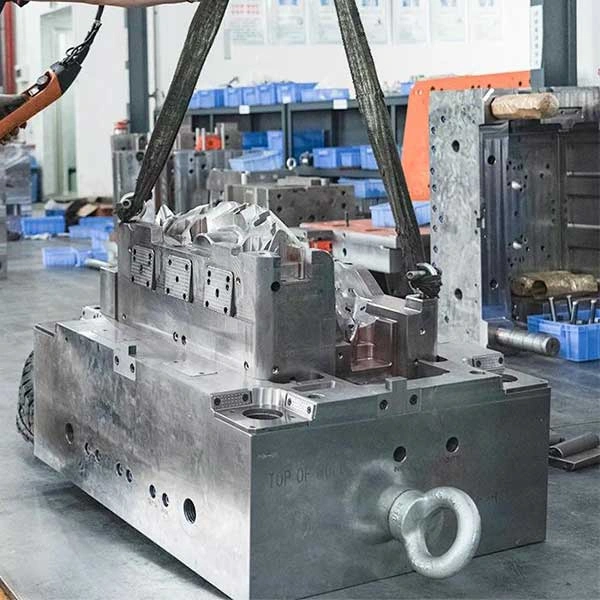
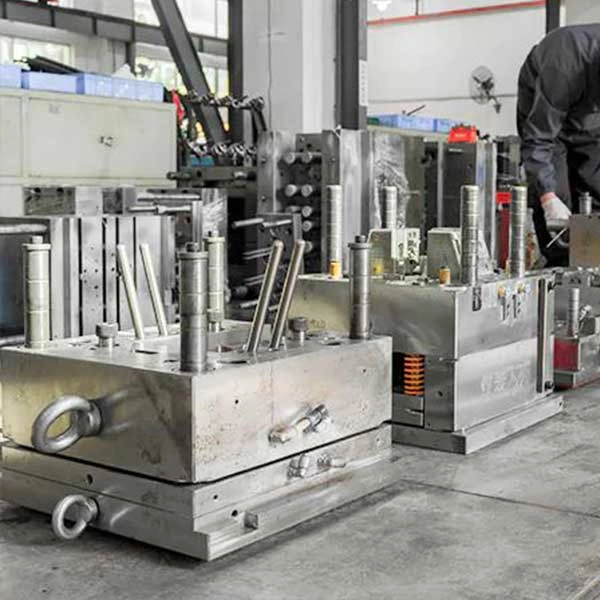
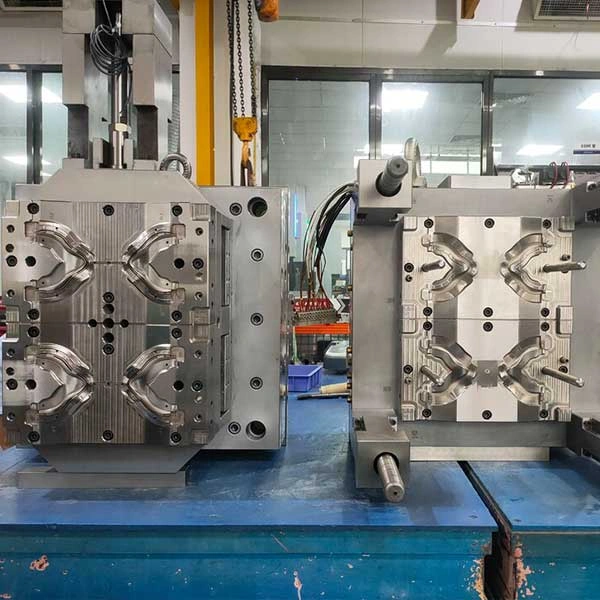
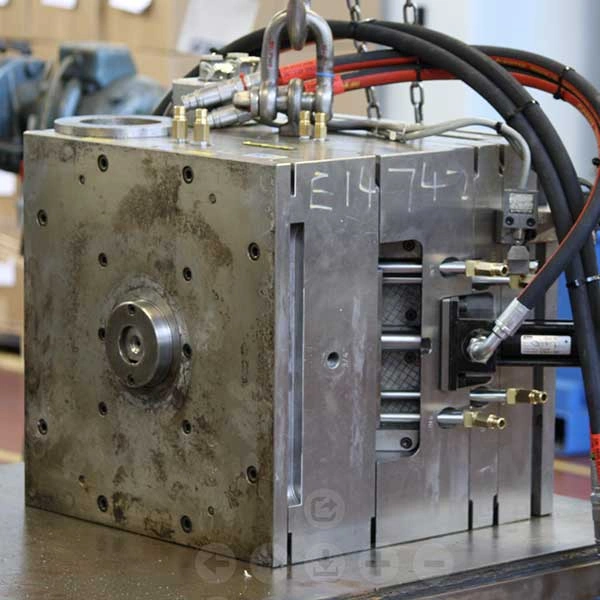
Types of Molds We are Offering
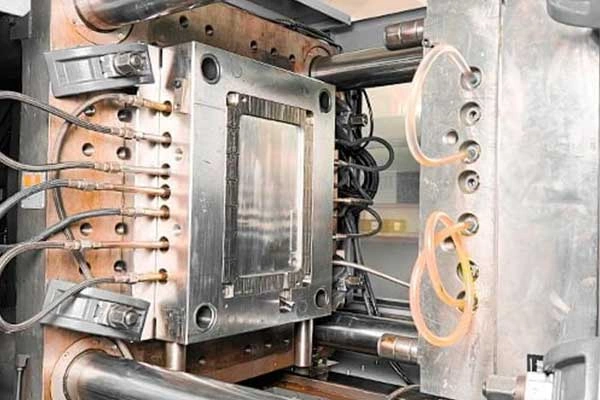
Plastic injection molds are aluminum or steel molds used to make parts from a wide range of plastics, including nylons, acrylics, elastomers and reinforced materials like glass-filled polyamide. Custom plastic molds can last between 100,000 and 1,000,000 shots.
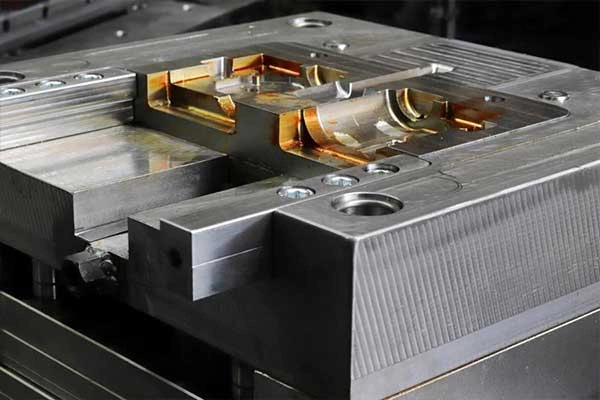
Metal injection molding (MIM) is a form of injection molding where a metal and binder mix is used as feedstock. A metal injection mold is usually made from tool steel to withstand the metal injection, but we can also use aluminum.
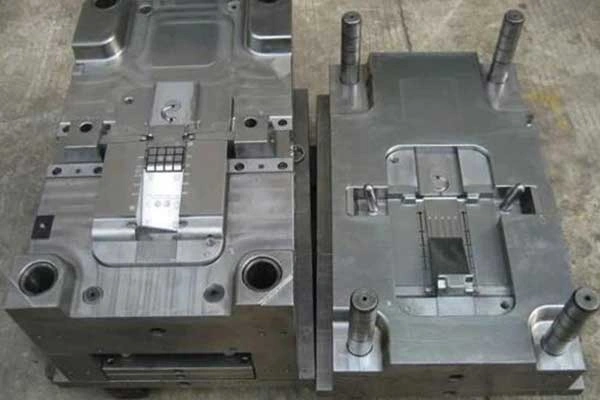
Unlike many prototyping specialists, we can provide metal casting molds (and a low-volume casting service through our partners). These molds — typically made from hardened steel — can be used to make parts from aluminum, zinc, magnesium and other non-ferrous metals.
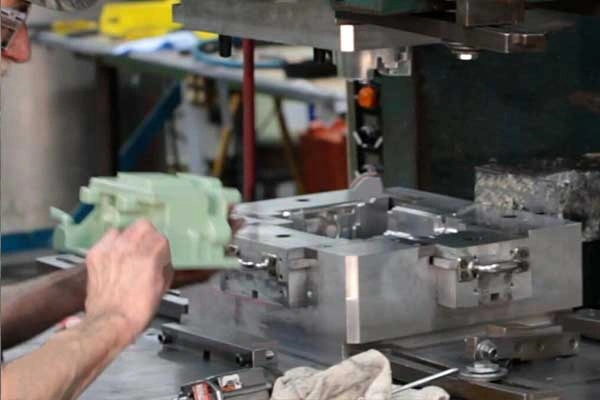
We can make low-cost investment casting molds by 3D printing a wax pattern and surrounding it with ceramic. The ceramic molds can then be used to make metal cast parts from metals like aluminum, zinc, magnesium, stainless steel and more.
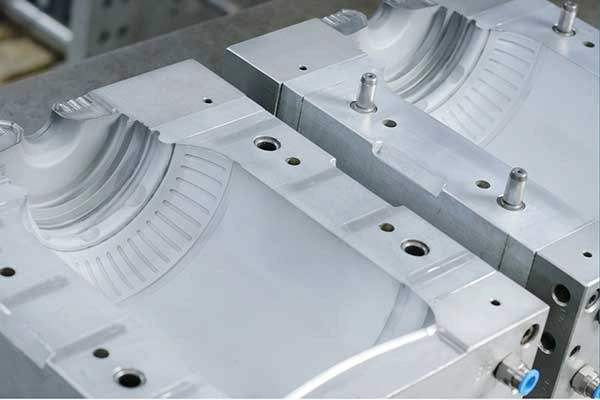
Our metal die molds can be used for aluminum extrusions of alloys like 6061 and 6063. We also make molds for plastic extrusions of materials like polystyrene, nylon, polypropylene and polythene.
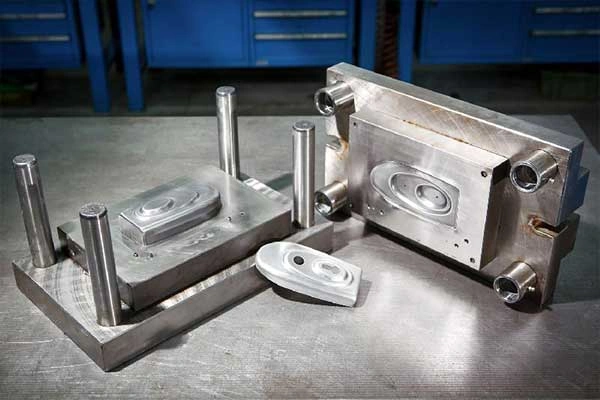
Our experience making sheet metal molds for stamping and bending allows us to create sheet metal prototypes.
How it Works
DFM
As soon as the customer confirms the order of molds, we will start to do an initial analysis of the parts to get an idea of the part line, gate positions, etc.

Mold design and mold flow analysis
The second step involves the use of predictive modeling software which allows us to see how the molten material will behave when it enters the mold, allowing for further improvements to the design.
CNC machining and EDM
We make the first molds using high-quality machining equipment, with the plastic, steel, aluminum, etc. chosen by the customer.
T1 sample
With the newly made molds, we make a T1 sample to have a clear vision of how the customer’s final molded parts will turn out.
Improvement if necessary
Based on our analysis of the T1 sample, we review the mold design and make any adjustments needed.
Commence Production and Shipping
We manufacture the molds in accordance with the final specifications before shipping them to the customer.
Formioo Mold Making FAQs
We collect a lot of FAQs from our real clients, and please check out our FAQ page. For more information about Formioo Company, you can also download our company E-catalogue brochure.
What kinds of molds can be made in mold manufacturing? What are the differences in their mold making methods?
Mold manufacturing can produce a variety of molds, including injection molds, die-casting molds, stamping molds, forging molds, extrusion molds, blow molding molds, and so on. There are differences in their mold making process.
Injection mold making focuses on numerical control processing, cooling system design, and surface polishing.
Die-casting mold making requires the use of special steel and emphasizes surface treatment and venting design.
Stamping mold making emphasizes clearance control and quenching treatment.
Forging mold manufacturing involves forging blanks followed by multiple processing steps and strict heat treatment.
The key to extrusion mold making lies in runner design and processing, ensuring the uniform flow of materials.
Blow molding molds usually use aluminum alloys and emphasize the quality of the mold cavity surface and the design of the cooling system.
At Formioo, we currently specialize in injection mold making and die-casting mold making, and are not involved in other mold manufacturing services at the moment.
How long does the mold making cycle usually take?
The mold making cycle is affected by multiple factors. Generally speaking, the cycle for simple and small molds is short, and it may be completed within 1 to 2 weeks. Molds with a medium level of complexity usually require 2 to 4 weeks, while complex and large molds may take more than 3 months to half a year.
There are obvious differences in the mold making cycles of different types of molds. The cycle for injection mold making is generally 2 to 6 weeks, and for those with high precision and complexity, it may reach more than 8 weeks. Due to the high requirements for materials and processes, the cycle for small die-casting mold making is 3 to 6 weeks, and for larger ones, it may exceed 3 months.
What is the approximate proportion of the cost of materials selected for mold making in the total cost?
In mold manufacturing, the cost of materials for injection molds accounts for about 20% to 30% of the total cost. For simple and small molds, it is close to 20%, while for large, precise, and complex mold making projects, it can reach 30% or even higher. Due to the high requirements for material performance, the cost of materials for die-casting molds usually accounts for 30% to 40% of the total cost. For small die-casting mold making, it is about 30%, and for large die-casting molds with high performance, it exceeds 40%.
For injection mold making, materials with high cost performance include P20 steel, which has good pre-hardening, processing, and polishing properties, making it suitable for medium and small molds with general precision. Another commonly used material is 718 steel, which has improved toughness and hardenability after adding nickel elements, and is ideal for large, complex, and precise injection molds.
In terms of die-casting mold making, H13 steel, as a hot work die steel, offers excellent toughness, thermal fatigue, and wear resistance. It is widely used in die-casting molds and has high cost performance. 3Cr2W8V steel stands out for its high-temperature strength, hardness, wear resistance, and thermal stability, making it suitable for die-casting molds for aluminum and magnesium alloys. This material is also moderately priced, offering a certain cost performance advantage in mold fabrication.
After the mold manufacturing is completed, will follow-up maintenance and care guidance be provided? Is the cost of maintenance and care high?
After the mold manufacturing is completed, professional manufacturing enterprises usually provide follow-up maintenance and care guidance, covering contents such as daily cleaning, lubrication, rust prevention, and special precautions for different types of molds. The cost of maintenance and care varies due to multiple factors.
The cost of daily maintenance is usually relatively low. For example, the expenses for cleaning supplies and lubricating oil range from dozens of dollars to hundreds of dollars each time. In terms of regular maintenance, for simple and small molds, it may cost several hundred dollars to about one or two thousand dollars each time, while for large and complex molds, such as injection molds or die-casting molds, it may cost several thousand dollars to tens of thousands of dollars each time.
If the mold needs to be repaired due to malfunctions, the cost is even more difficult to determine. The repair cost for minor malfunctions may range from several hundred dollars to several thousand dollars, and when there is serious damage, the repair cost may be as high as tens of thousands of dollars or even higher. Moreover, it may also affect the production progress and bring about an increase in indirect costs.
If your products are injection molded by Formioo, no fees related to mold maintenance and care will be charged.
What factors should be mainly considered when designing molds for ABS injection molding to ensure the smooth demolding and good formation of products?
Mold manufacturing in special industries like medical and aerospace has numerous additional quality standards and certification requirements. In the medical industry, in terms of quality standards, materials must be non-toxic, environmentally friendly, anti-allergic, and have good biocompatibility. The precision in mold making should be controlled within a very small tolerance range, such as ±0.005 or even stricter, and high requirements are placed on reliability and stability.
Regarding certification requirements, it is necessary to pass the ISO 13485 certification to establish a sound quality management system, conduct biocompatibility tests to ensure there is no adverse impact on the human body, and also obtain specific certifications in different countries and regions, such as the CE certification in the European Union and the FDA certification in the United States.
In the aerospace industry, in terms of quality standards, materials should possess high strength, high hardness, good toughness, fatigue resistance, and stability in extreme environments. The dimensional precision required in mold fabrication is at the micron level, and the surface roughness should be extremely low, with high reliability and durability.
As for the certification requirements, the AS9100 series certifications are needed to regulate the quality management throughout the whole process. Special processes in mold manufacturing require specialized certifications to ensure the stability and reliability of the processes. Meanwhile, suppliers need to undergo strict qualification certifications that cover multiple aspects such as technical capabilities, production equipment, and quality management systems. Only when these requirements are met can the molds be applied in the corresponding special industries.
Injection Mold Making Resource
Flawless Design, Precision Defined
Contact us for design assistance, free quote, and expert advice today.
Your inquiry will be replied within 24 working hours, and we respect your privacy.
